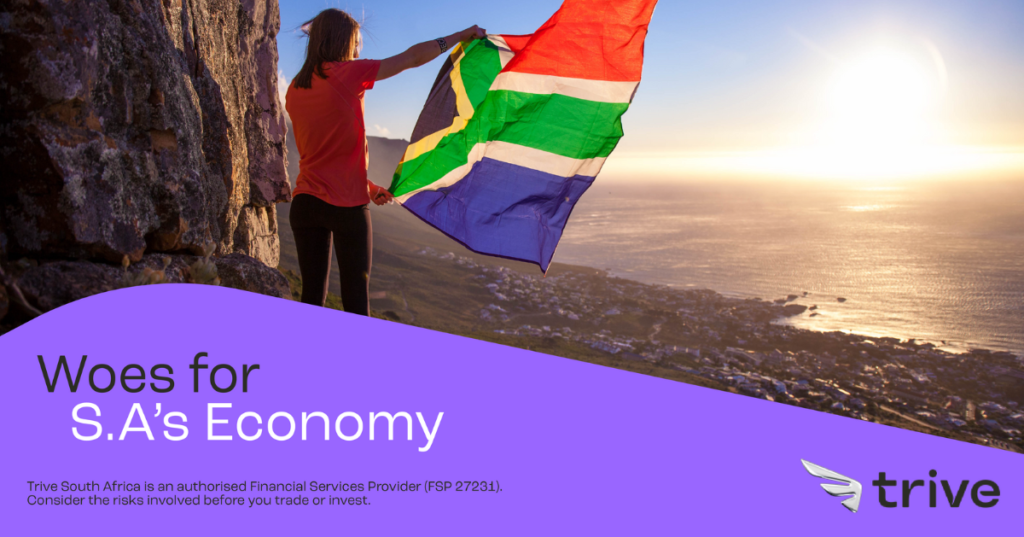
As South Africa battles with a persistent energy crisis and the looming threat of loadshedding, the country’s economic prospects appear increasingly bleak. Coupled with allegations of involvement in international conflicts, particularly the accusations of aiding Russia in its war with Ukraine, the South African economy faces a storm of challenges. The repercussions are already being felt in the local markets, as the weakening rand reflects growing concerns among investors. In anticipation of the central bank’s monetary policy committee (MPC) meeting, market sentiment points toward a potential 50-basis point rate hike.
Driven by a strengthening dollar, the rand’s value continues to erode, with recent trading touching R19.48 to the dollar. The progress made around raising the US debt ceiling has boosted market optimism, bolstering the greenback currency to a seven-week high. Meanwhile, Eskom’s warning of potential stage 8 power cuts during the upcoming winter season has further dampened local sentiment, depreciating the rand. The impending threat of stagflation, characterized by high inflation and sluggish economic growth amidst South Africa’s electricity crisis, is doing no favours for market sentiment around the rand, implying that another rate hike may very well be on the horizon come to the next MPC meeting. Unfortunately, a quick resolution to the energy crisis seems elusive, and the negative impact of ongoing power cuts on the economy is expected to persist for now.
The consequences of the weakening rand are evident in the bond market, with local 10-year bonds trading at around 11.65%. The anticipation of higher rates for longer and the current reduction of foreign bond holdings suggests that the local bond market’s recovery may be elusive in the near term. These concerns inevitably extend to the rand, which also faces an uncertain path ahead.
The South African Reserve Bank (SARB) faces a daunting task as it prepares to convene for its next meeting. Local headline inflation, currently sitting at 7.1%, is significantly above the target band of 3% – 6%, while the rand has considerably weakened since the MPC’s last gathering in March. At the last MPC meeting, the central bank raised the benchmark repo rate by 50 basis points to 8%, the highest since 2009. The Reserve Bank has implemented a cumulative interest rate hike of 425 basis points to combat surging inflation since November 2021. Given the substantial weakening of the rand and the escalating costs associated with loadshedding, local market participants could potentially be staring down the barrel of another 50-basis point rate hike at the upcoming meeting.
South Africa finds itself at a critical juncture, grappling with an energy crisis that shows no signs of immediate resolution. The weakening rand, exacerbated by loadshedding and allegations of involvement in international conflicts, paints a dire outlook for the country’s economy. With inflation currently well above the Reserve Bank’s target band and the prospect of stagflation looming, the Reserve Bank faces the daunting task of charting a path forward. As South Africa prepares for the central bank’s upcoming MPC meeting, all eyes are on the decision.
Sources: BusinessDay, IOL, Moneyweb, Reuters, Trading View
Disclaimer: Trive South Africa (Pty) Ltd, Registration number 2005/011130/07, and an Authorised Financial Services Provider in terms of the Financial Advisory and Intermediary Services Act 2002 (FSP No. 27231). Any analysis/data/opinion contained herein are for informational purposes only and should not be considered advice or a recommendation to invest in any security. The content herein was created using proprietary strategies based on parameters that may include price, time, economic events, liquidity, risk, and macro and cyclical analysis. Securities involve a degree of risk and are volatile instruments. Market and economic conditions are subject to sudden change, which may have a material impact on the outcome of financial instruments and may not be suitable for all investors. When trading or investing in securities or alternative products, the value of the product can increase or decrease meaning your investment can increase or decrease in value. Past performance is not an indication of future performance. Trive South Africa (Pty) Ltd, and its employees assume no liability for any loss or damage (direct, indirect, consequential, or inconsequential) that may be suffered from using or relying on the information contained herein. Please consider the risks involved before you trade or invest.




